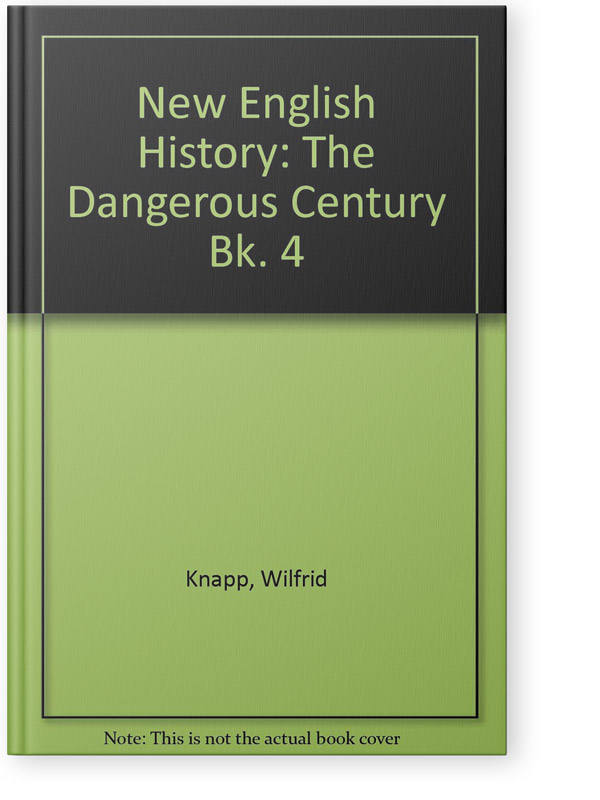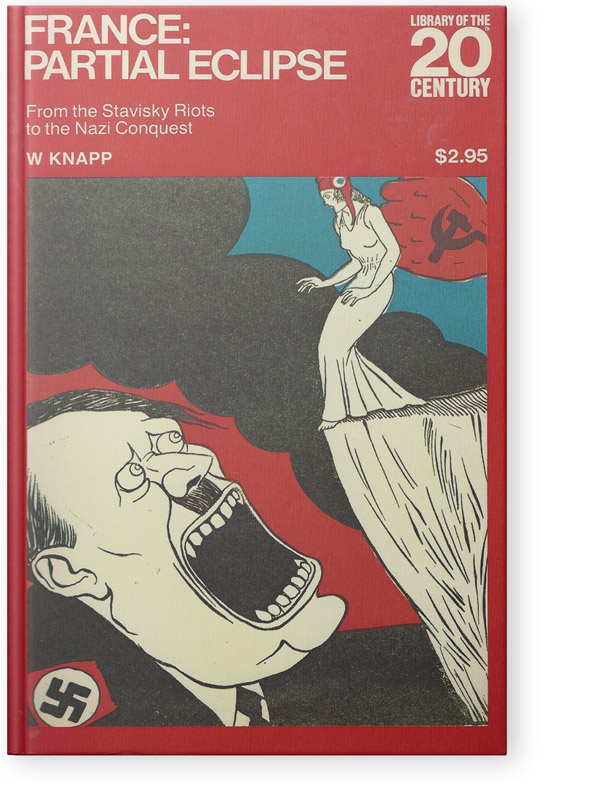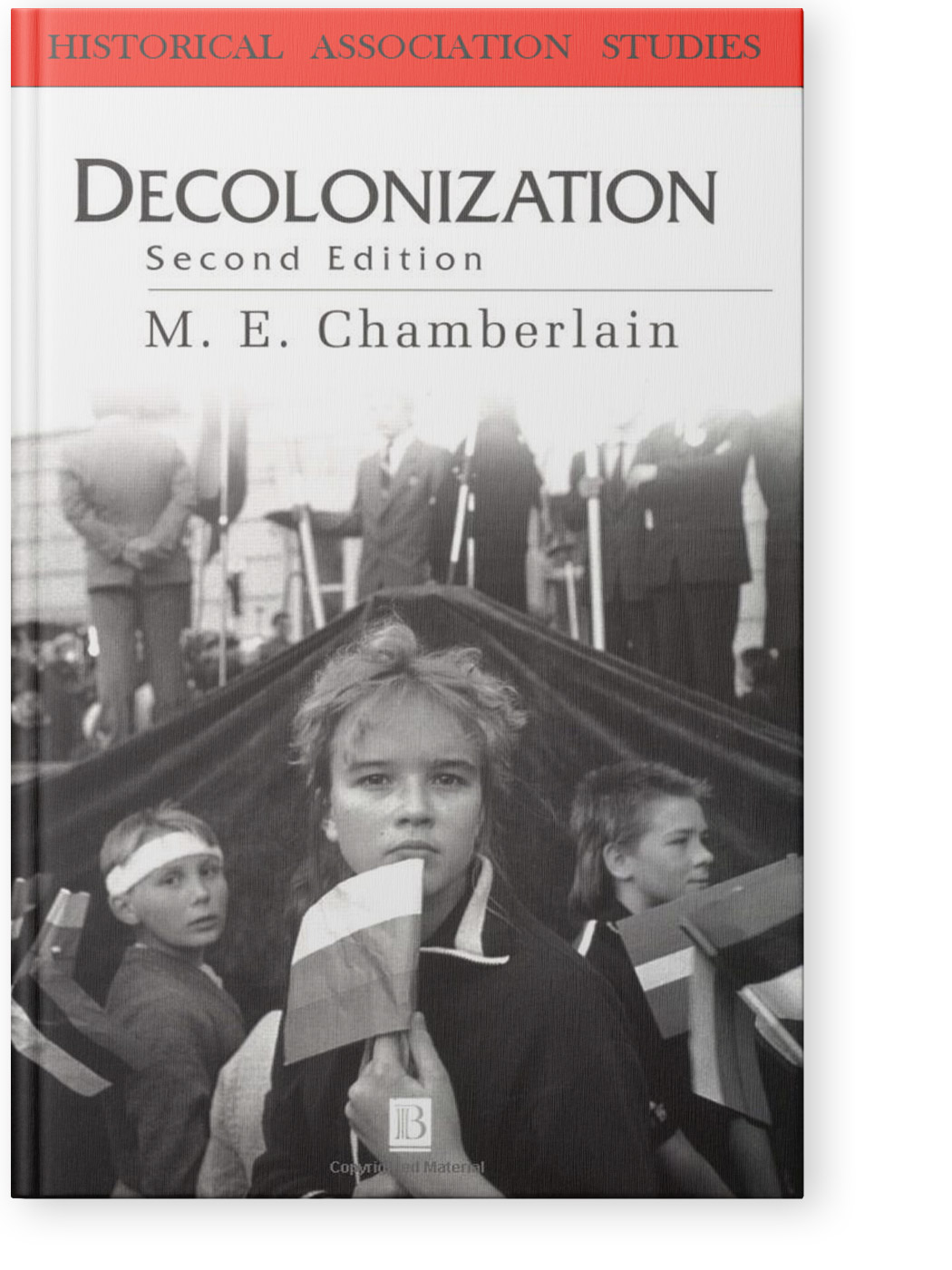
DecolonizationThe Fall of the European Empires 2nd (second) Edition by Chamberlain, M. E.
This book charts the decolonization of Asia, Africa and the Caribbean from 1945 to the present day, analysing the ways in which countries separated themselves from the control of the European Powers.
Muriel Evelyn Chamberlain (born November 1932) is emeritus professor of history at the University of Wales, Swansea. She is a specialist in European colonisation and de-colonisation and British foreign policy in the nineteenth century. Chamberlain is one of the general editors of the Historical Association Studies book series.
ISBN-13: 978-0631216025
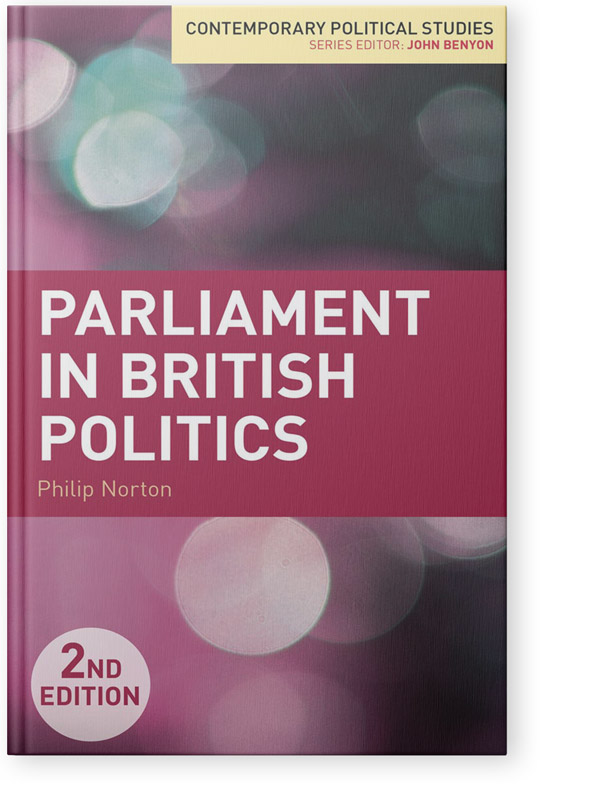
Parliament
in British Politics
The role and significance of parliament in the British political system has changed dramatically in the past decade with the setting up of elected assemblies in Scotland, Wales and Northern Ireland, the extension of European law making and reform of parliament itself especially in relation to the House of Lords. This major new text by a leading academic authority who is also a parliamentarian himself, revisits the central question of his highly-acclaimed earlier text Does Parliament Matter? in relation both to its role in governance and its relationship to the citizen.
Philip Norton is Professor of Government and Director of the Centre for Legislative Studies, University of Hull, UK, and, as Lord Norton of Louth, has been a member of the House of Lords since 1998.
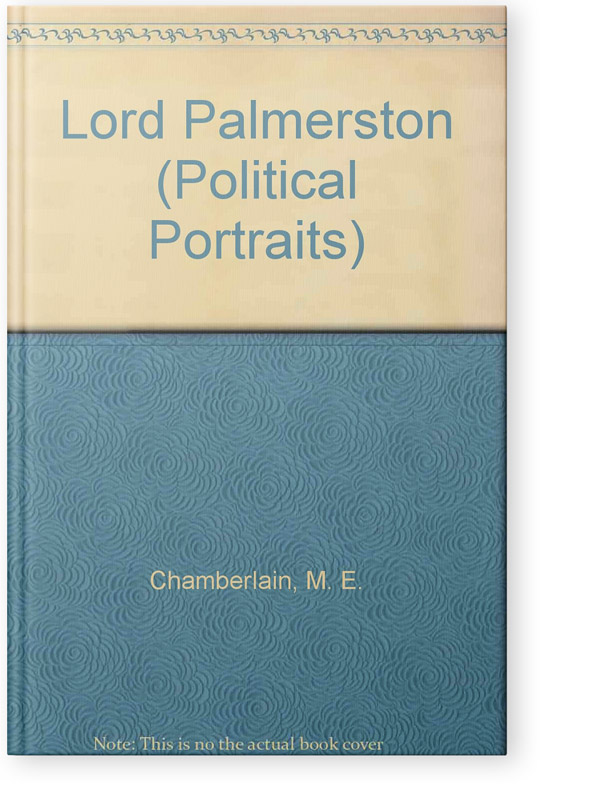
Lord Palmerston (Political Portraits)
“Dr. Chamberlain brings to her study …a mastery of the considerable bulk of historical literature …on Palmerston, in addition to her own research expertise as the biographer of Lord Aberdeen. The result is a clear, concise and readable account of Palmerston’s career…It is a model of what a book of this kind should be, and it will be welcomed by those who teach–or study–this area of history.” –Times Higher Education Supplement (Author)
Muriel Evelyn Chamberlain (born November 1932) is emeritus professor of history at the University of Wales, Swansea. She is a specialist in European colonisation and de-colonisation and British foreign policy in the nineteenth century. Chamberlain is one of the general editors of the Historical Association Studies book series.
Paperback: 135 pages
Publication Date: August 1988
Publisher: Catholic University of America Press
Genres: Biographies & Memoirs, History, Travel. Non-fiction
ISBN-10: 0813206642
ISBN-13: 978-0813206646
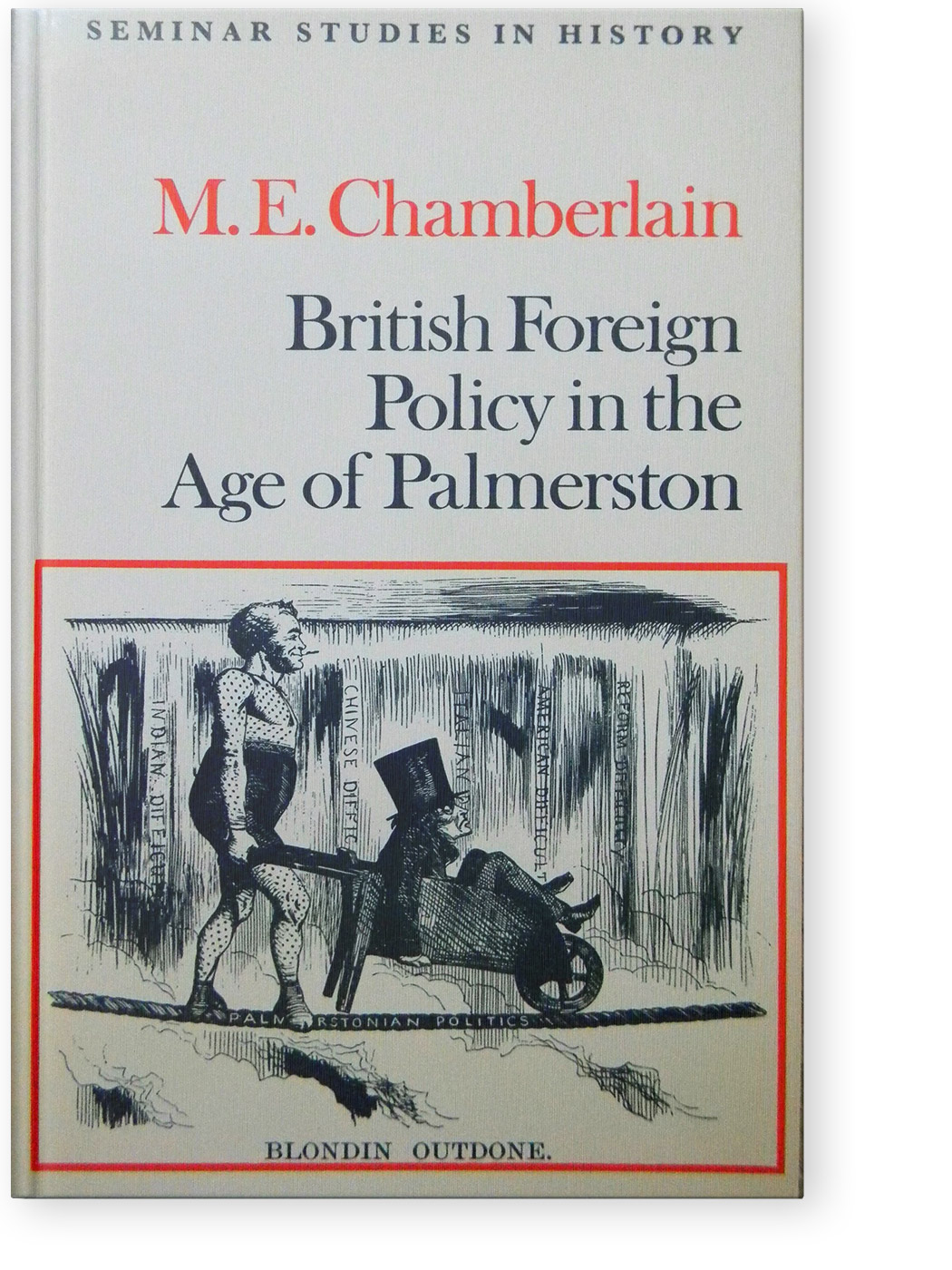
British foreign policy
in the age of Palmerston (Seminar studies in history)
British diplomacy dealt with a variety of international crises in the early and mid nineteenth century. Reconstructing a balance of power in Europe and the break-up of the Spanish empire in the New World dominated the decade after 1815. In the 1830s problems arose from the Belgian revolt, civil wars in the Iberian peninsula and military conflict in the Eastern Mediterranean, followed by a war with China and an entente and subsequently deteriorating relations with France in the 1840s. Most of these crises were handled by Lord Palmerston as Foreign Secretary, before he became Prime Minister in 1855 during the Crimean War. The module concludes with the difficulties caused to Britain by civil war in America and Palmerston’s efforts, in the end successful, to avoid being drawn into that conflict.
Muriel Evelyn Chamberlain (born November 1932) is emeritus professor of history at the University of Wales, Swansea. She is a specialist in European colonisation and de-colonisation and British foreign policy in the nineteenth century. Chamberlain is one of the general editors of the Historical Association Studies book series.
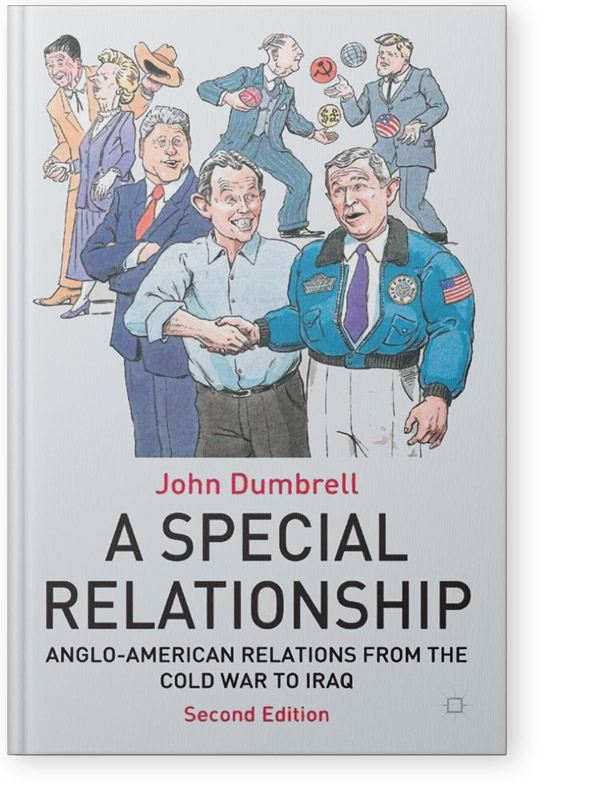
A Special Relationship
Anglo American Relations from the Cold War to Iraq
In the comprehensively revised and updated new edition of this highly-acclaimed text, John Dumbrell assesses how and why the Anglo-American special relationship found a new lease of life under Blair as Britain repeatedly ‘chose’ the US in its evolving foreign policy orientation rather than Europe. There was, he argues, no inevitability about this response to the post 9/11 international situation and its longer term rationale and prospects still remain in doubt. Contents Introduction Transatlantic Attitudes The House that Jack and Mac Built Lyndon Johnson to Jimmy Carter Reagan and George H.W. Bush After the Cold War: Clinton and George W. Bush Nuclear and Intelligence Cooperation War: Vietnam, the Falklands and the Gulf Britain, the United States and European Integration Ireland Conclusion.
John Dumbrell is Professor of Government at Durham University, UK. He specialises in US politics and US political history.
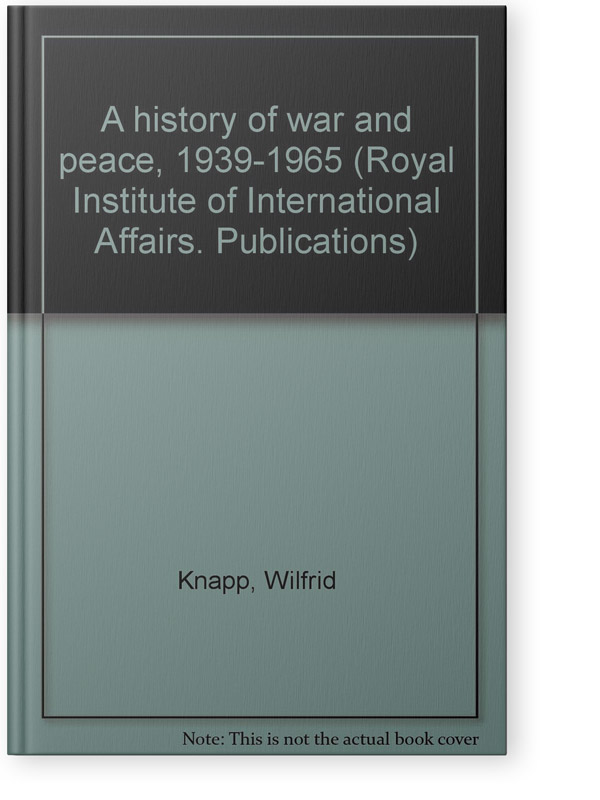
A History of War and Peace, 1939-1965
(Royal Institute of International Affairs. Publications)
Ahead of the November issue of International Affairs, which will look at various aspects of the United Nations and global governance to mark the UN’s 70th anniversary, the journal has worked with Giovanni Farese, managing editor of The Journal of European Economic History, to compile a virtual issue on what he calls ‘the rise of the dual culture of world development and world government’ in international relations. The virtual issue consists of a selection of articles published in International Affairs between 1930 and 1950. In the journal’s early decades, most articles stemmed from speeches given at Chatham House. The virtual issue is hence a cavalcade of prominent persons—scholars (among them E. H. Carr), diplomats, policy-makers, lawyers, bankers—who came to speak at Chatham House to offer their views on world order and burgeoning ideas on world government and development.
Wilfrid Knapp
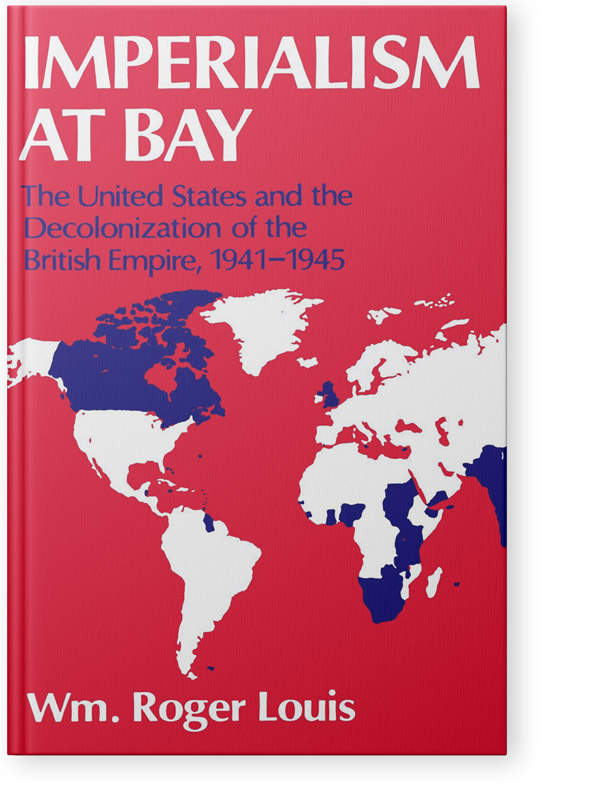
Imperialism At Bay
The United States and the Decolonization of the British Empire, 1941-1945
This book examines the wartime controversies between Britain and America about the future of the colonial world, and considers the ethical, military, and economic forces behind imperialism during World War II. It concludes that, for Britain, there was a revival of the sense of colonial mission; the Americans, on the other hand, felt justified in creating a strategic fortress in the Pacific Islands while carrying the torch of “international trusteeship” throughout the rest of the world—a scheme that Churchill and others viewed as a cloak for American expansion.
William Roger Louis CBE FBA (born May 8, 1936), also known as Wm. Roger Louis or, informally, Roger Louis, is an American historian and a professor at the University of Texas at Austin. Louis is the editor-in-chief of The Oxford History of the British Empire, a former president of the American Historical Association (AHA), a former chairman of the U.S. Department of State’s Historical Advisory Committee, and a founding director of the AHA’s National History Center in Washington, D. C. Read more
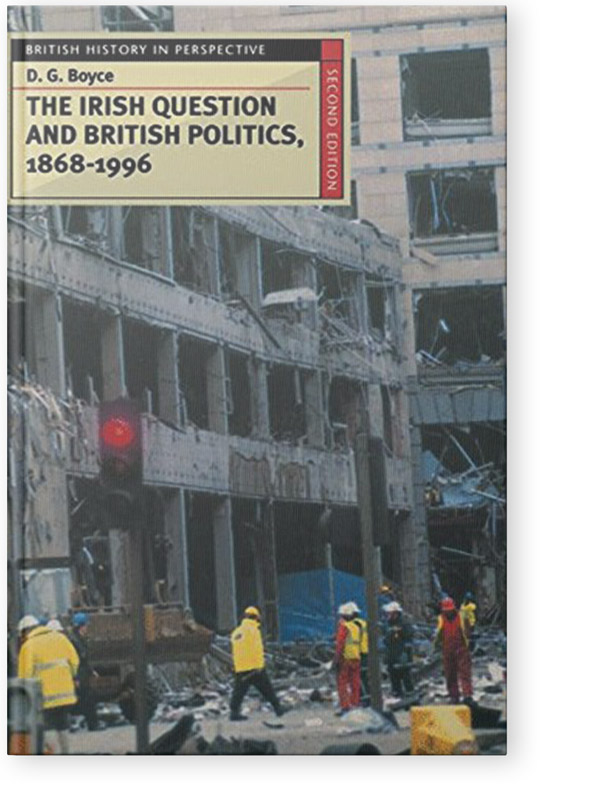
The Irish Question and British Politics
1868-1996 (British History in Perspective)
The problems of modern Ireland have attracted the attention of many British political leaders from Gladstone to Major. Attempts to formulate a ‘solution’ have been governed by the British perception of what the problem is, and by the structures, as well as the ideas of British party politics and British political life: Ireland was never a laboratory in which dispassionate political experiments could be conducted. Modern Ireland has been shaped by British policy, and this has itself been influenced by British political habits and traditions, social and economic reforms, and new governmental institutions have been applied by politicians both of the left and the right. The ‘Framework Documents’ represent the latest attempt to achieve what Gladstone, David Lloyd George and Neville Chamberlain sought, and failed to achieve: a lasting settlement of the political divisions within Ireland, and between Ireland the Great Britain. This book places the Irish question in the wider context of the history of the British Isles, and thus seeks to explain its special place in British history as the ‘Oldest Question’, and as a question for contemporary Britain. Fully revised and with a new chapter to bring the analysis up to 1996, this new edition of Professor Boyce’s work will be widely acclaimed.
D. G. Boyce also known as George Boyce, is a Northern Irish historian who specializes in Irish history. He is Professor of Politics in the Department of Politics at the University of Wales, Swansea. He was educated at Lurgan College in Armagh and at Queen’s University Belfast. He worked in the Department of Manuscripts at the Bodleian Library in Oxford until 1971. From 1971 until 2004 he was a lecturer in the Department of Politics and International relations at Swansea University. He is also a fellow of the Royal Historical Society. He has contributed 15 articles to the Oxford Dictionary of National Biography.
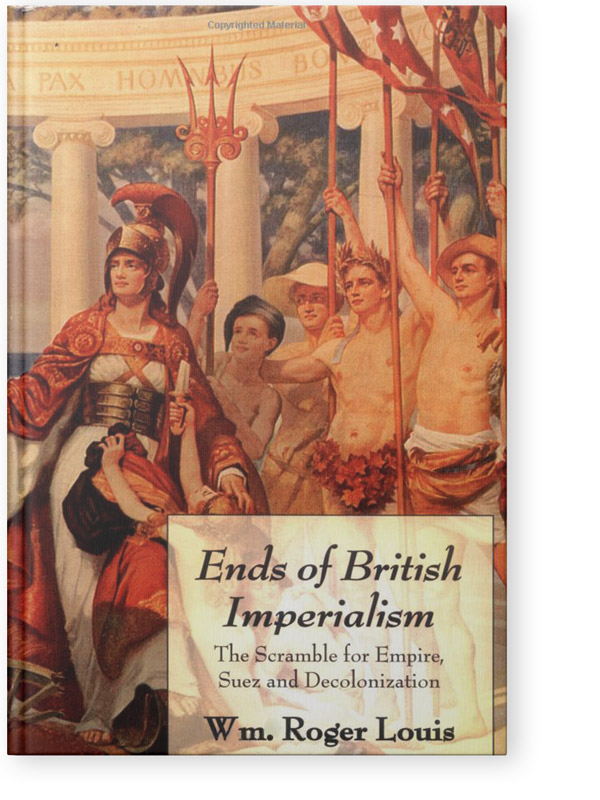
Ends of British Imperialism
The Scramble for Empire, Suez, and Decolonization
Pax Britannica to Pax Americana is the story of the British Empire from its late-nineteenth century flowering to its present extinction. Louis traces the British Empire from the scramble for Africa, the turbulent imperial history of the Second World War in Asia, and the mid-20th century rush to independence to the Suez crisis, the icon of empire’s end. It forms the ideal platform from which to examine the aims and outcome of empire. This authoritative and highly engaging history appears at a time when interest in the history of the British Empire has, ironically, never been stronger, making Ends of British Imperialism a must-read item for both scholar and general reader.
William Roger Louis CBE FBA (born May 8, 1936), also known as Wm. Roger Louis or, informally, Roger Louis, is an American historian and a professor at the University of Texas at Austin. Louis is the editor-in-chief of The Oxford History of the British Empire, a former president of the American Historical Association (AHA), a former chairman of the U.S. Department of State’s Historical Advisory Committee, and a founding director of the AHA’s National History Center in Washington, D. C. Read more
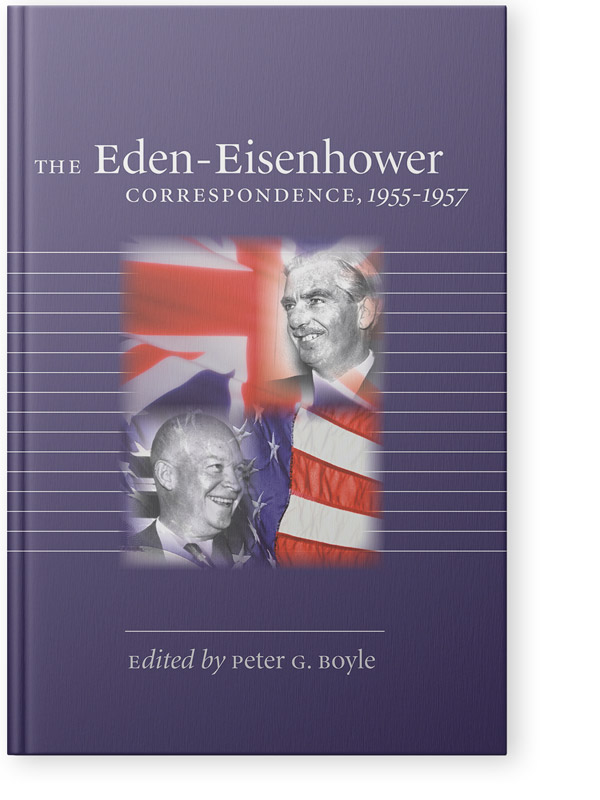
The Eden-Eisenhower Correspondence, 1955-1957
The personal correspondence between President Dwight D. Eisenhower and Prime Minister Anthony Eden during the time they were simultaneously in office tells the dramatic story of a relationship that began with great promise but ended in division and estrangement. Many of the letters have only recently been declassified, making it possible for the first time to publish this unique historic collection in its entirety.
Peter G. Boyle’s introduction, annotations, and conclusion provide context for the letters–details about the personalities and careers of Eden and Eisenhower and major issues that influenced the Anglo-American relationship up to 1955, such as relations with the Soviet Union, nuclear concerns, colonialism, the Middle and Far East, economic issues, and intelligence matters. The letters themselves offer an intimate look into the special connection between Britain and the United States through the often eloquent words of their leaders. They offer particular insight into the Suez Crisis of 1956, when Eden’s and Eisenhower’s views greatly diverged over the use of force to resolve the situation. Their personal relationship cooled from that point on and ended with Eden’s resignation in January 1957.
Peter G. Boyle is senior lecturer in the School of American and Canadian Studies at the University of Nottingham. He is the author of American-Soviet Relations: From the Russian Revolution to the Fall of Communism and editor of The Churchill-Eisenhower Correspondence, 1953-1955.
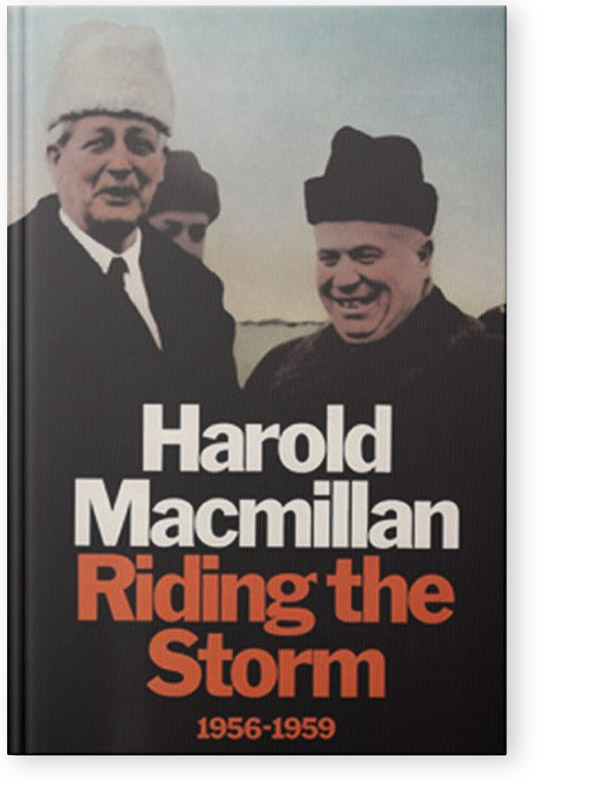
Riding the Storm 1956-1959 (Macmillan Vol. 4)
Maurice Harold Macmillan served in the Grenadier Guards during the First World War. He was wounded three times, most severely in September 1916 during the Battle of the Somme. He spent the rest of the war in a military hospital unable to walk, and suffered pain and partial immobility for the rest of his life. After the war Macmillan joined his family business, then entered Parliament in the 1924 General Election, for the northern industrial constituency of Stockton-on-Tees. After losing his seat in 1929, he regained it in 1931, soon after which he spoke out against the high rate of unemployment in Stockton-On-Tees, and against appeasement. Rising to high office during the Second World War as a protégé of wartime Prime Minister Winston Churchill, Macmillan then served as Foreign Secretary and Chancellor of the Exchequer under Churchill’s successor Sir Anthony Eden. When Eden resigned in 1957 following the Suez Crisis, Macmillan succeeded him as Prime Minister. Read more
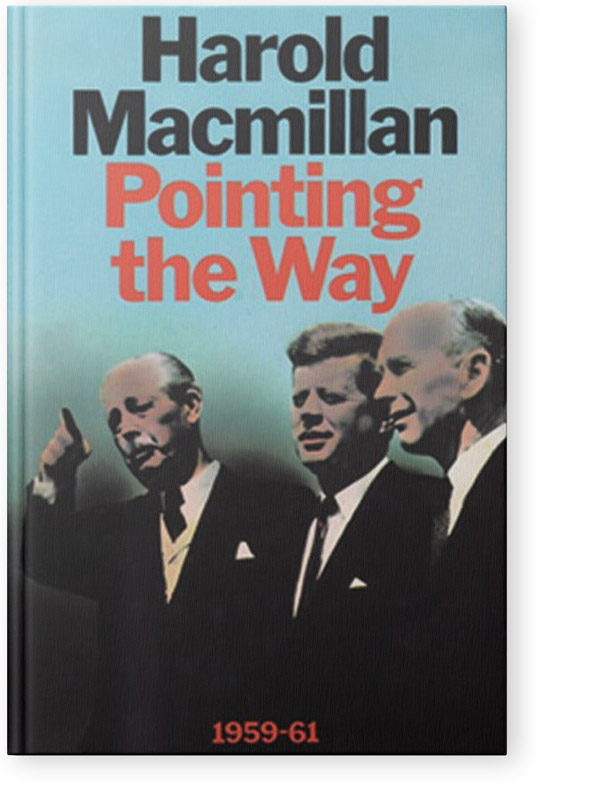
Pointing the Way: 1959-1961 (Macmillan Vol. 5)
Maurice Harold Macmillan served in the Grenadier Guards during the First World War. He was wounded three times, most severely in September 1916 during the Battle of the Somme. He spent the rest of the war in a military hospital unable to walk, and suffered pain and partial immobility for the rest of his life. After the war Macmillan joined his family business, then entered Parliament in the 1924 General Election, for the northern industrial constituency of Stockton-on-Tees. After losing his seat in 1929, he regained it in 1931, soon after which he spoke out against the high rate of unemployment in Stockton-On-Tees, and against appeasement. Rising to high office during the Second World War as a protégé of wartime Prime Minister Winston Churchill, Macmillan then served as Foreign Secretary and Chancellor of the Exchequer under Churchill’s successor Sir Anthony Eden. When Eden resigned in 1957 following the Suez Crisis, Macmillan succeeded him as Prime Minister. Read more
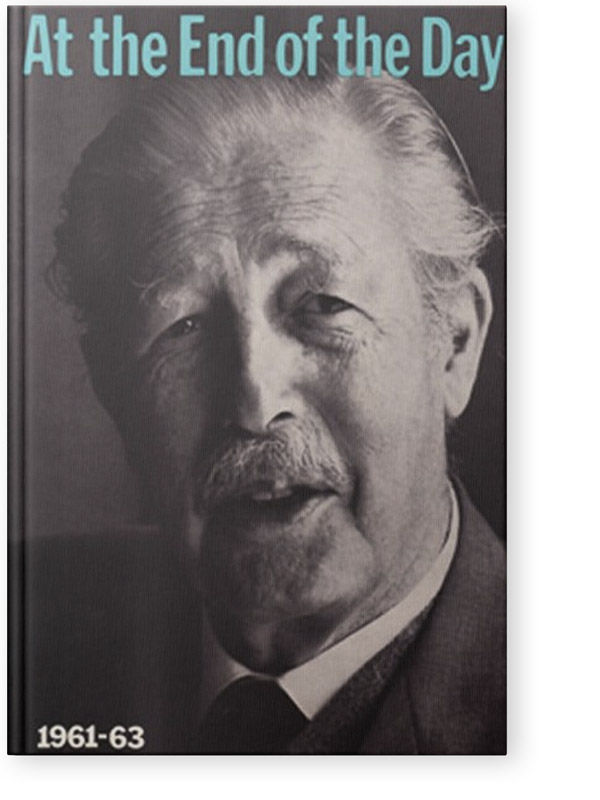
At the End of the Day: 1961-1963 (Macmillan Vol. 6)
Maurice Harold Macmillan served in the Grenadier Guards during the First World War. He was wounded three times, most severely in September 1916 during the Battle of the Somme. He spent the rest of the war in a military hospital unable to walk, and suffered pain and partial immobility for the rest of his life. After the war Macmillan joined his family business, then entered Parliament in the 1924 General Election, for the northern industrial constituency of Stockton-on-Tees. After losing his seat in 1929, he regained it in 1931, soon after which he spoke out against the high rate of unemployment in Stockton-On-Tees, and against appeasement. Rising to high office during the Second World War as a protégé of wartime Prime Minister Winston Churchill, Macmillan then served as Foreign Secretary and Chancellor of the Exchequer under Churchill’s successor Sir Anthony Eden. When Eden resigned in 1957 following the Suez Crisis, Macmillan succeeded him as Prime Minister. Read more
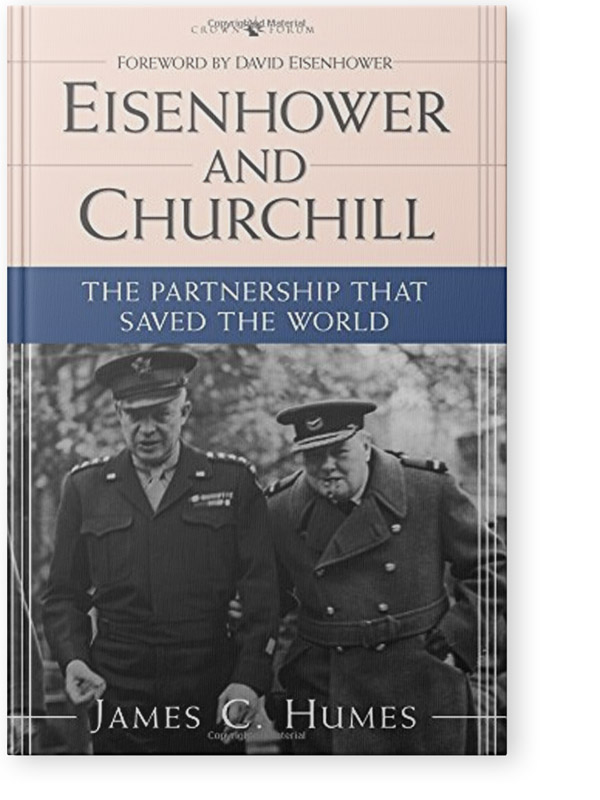
Eisenhower and Churchill
The Partnership That Saved the World
Eisenhower and Churchill tells the magnificent story of these two great leaders and their exemplary partnership in war and peace. Through enlivened pages and fascinating anecdotes, author James C. Humes illuminates the human side of each man, who had more in common with each other than a world war. You’ll discover the extraordinary stories of how both were born to domineering mothers and failed fathers, both did not qualify for the military academy on the first try, both were traumatized by experiences in World War I, both were talented writers, and both lost a child in the very same year (1921). Remarkably, each man did not warm to the other at first; but as they worked together, their respect for one another grew to become a powerful friendship that lived long after the echoes of war had receded into the past.
James C. Humes is an author and former presidential speechwriter. Humes, along with William Safire and Pat Buchanan, is credited for authoring the text on the Apollo 11 lunar plaque.
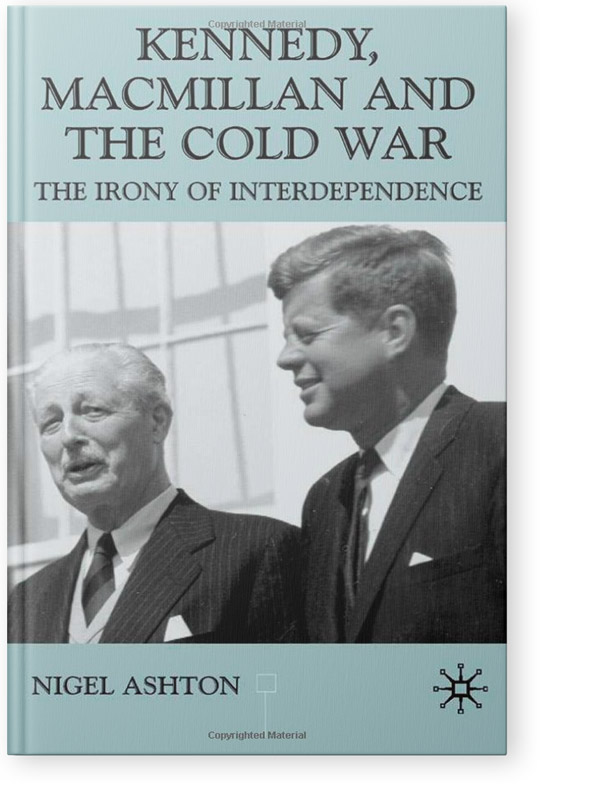
Kennedy, Macmillan and the Cold War
The Irony of Interdependence
Nigel J. Ashton analyses Anglo-American relations during a crucial phase of the Cold War. He argues that although policy-makers on both sides of the Atlantic used the term ‘interdependence’ to describe their relationship this concept had different meanings in London and Washington. The Kennedy Administration sought more centralized control of the Western alliance, whereas the Macmillan Government envisaged an Anglo-American partnership. This gap in perception gave rise to a ‘crisis of interdependence’ during the winter of 1962-3, encompassing issues as diverse as the collapse of the British EEC application, the civil war in the Yemen, the denouement of the Congo crisis and the fate of the British independent nuclear deterrent.
Nigel J. Ashton is Lecturer in International History the London School of Economics and Political Science. He is the author of Eisenhower, Macmillan and the Problem of Nasser.
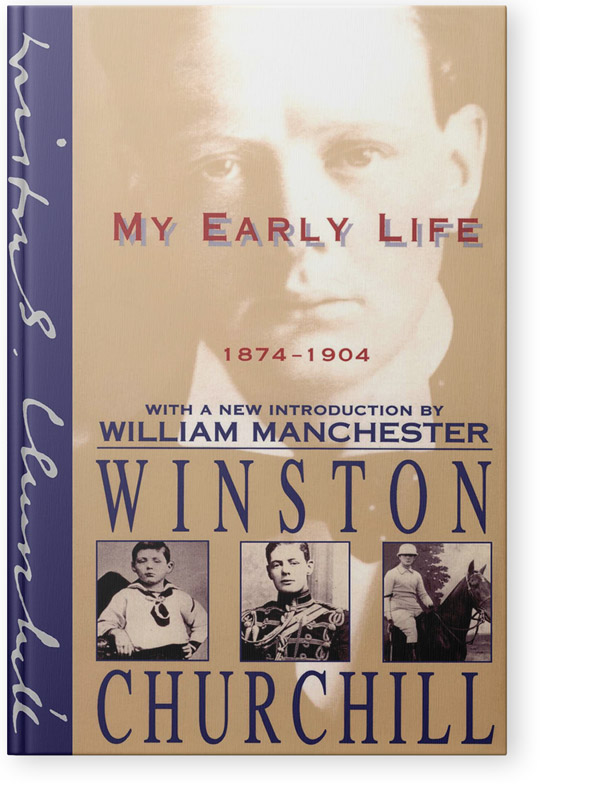
My Early Life, 1874-1904
Here, in his own words, are the fascinating first thirty years in the life of one of the most provocative and compelling leaders of the twentieth century: Winston Churchill.
As a visionary, statesman, and historian, and the most eloquent spokesman against Nazi Germany, Winston Churchill was one of the greatest figures of the twentieth century. In this autobiography, Churchill recalls his childhood, his schooling, his years as a war correspondent in South Africa during the Boer War, and his first forays into politics as a member of Parliament. My Early Life not only gives readers insights into the shaping of a great leader but, as Churchill himself wrote, “a picture of a vanished age.” To fully understand Winston Churchill and his times, My Early Life is essential reading.
Winston Churchill Sir Winston Leonard Spencer-Churchill was a British statesman, army officer and writer, who served as Prime Minister of the United Kingdom from 1940 to 1945 and again from 1951 to 1955.
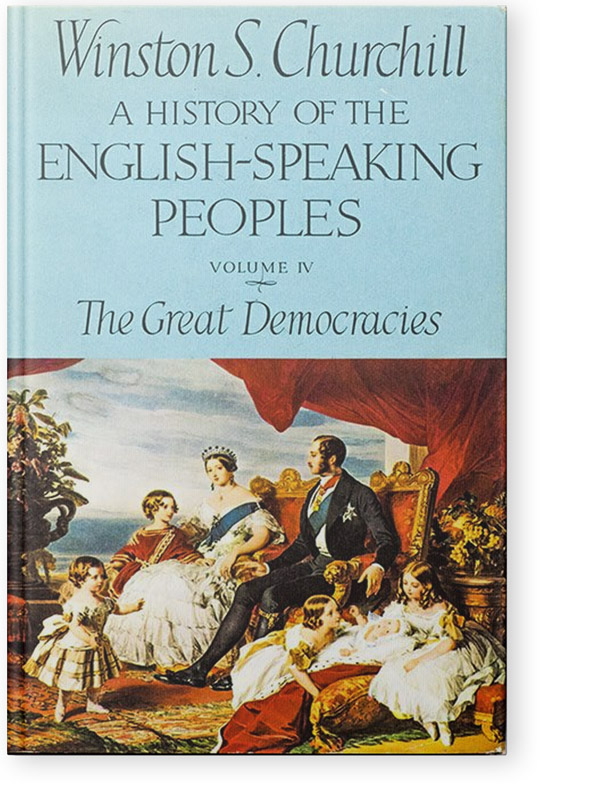
A History of the English-Speaking Peoples Vol. 4
The Great Democracies
The fourth of Churchill’s grandly ambitious four-volume A History of the English-Speaking Peoples begins with the conclusion of the Napoleonic Wars—and ends with the Boer War of 1902. In it, Churchill makes an impassioned argument for the crucial role played by the English-speaking people in exporting not just economic benefits, but political freedom. Written in Churchill’s characteristically compelling style, this volume is the only one in the series to benefit from Churchill’s own personal experience as a soldier and a wartime journalist during the Boer War.
Winston Churchill Sir Winston Leonard Spencer-Churchill was a British statesman, army officer and writer, who served as Prime Minister of the United Kingdom from 1940 to 1945 and again from 1951 to 1955.
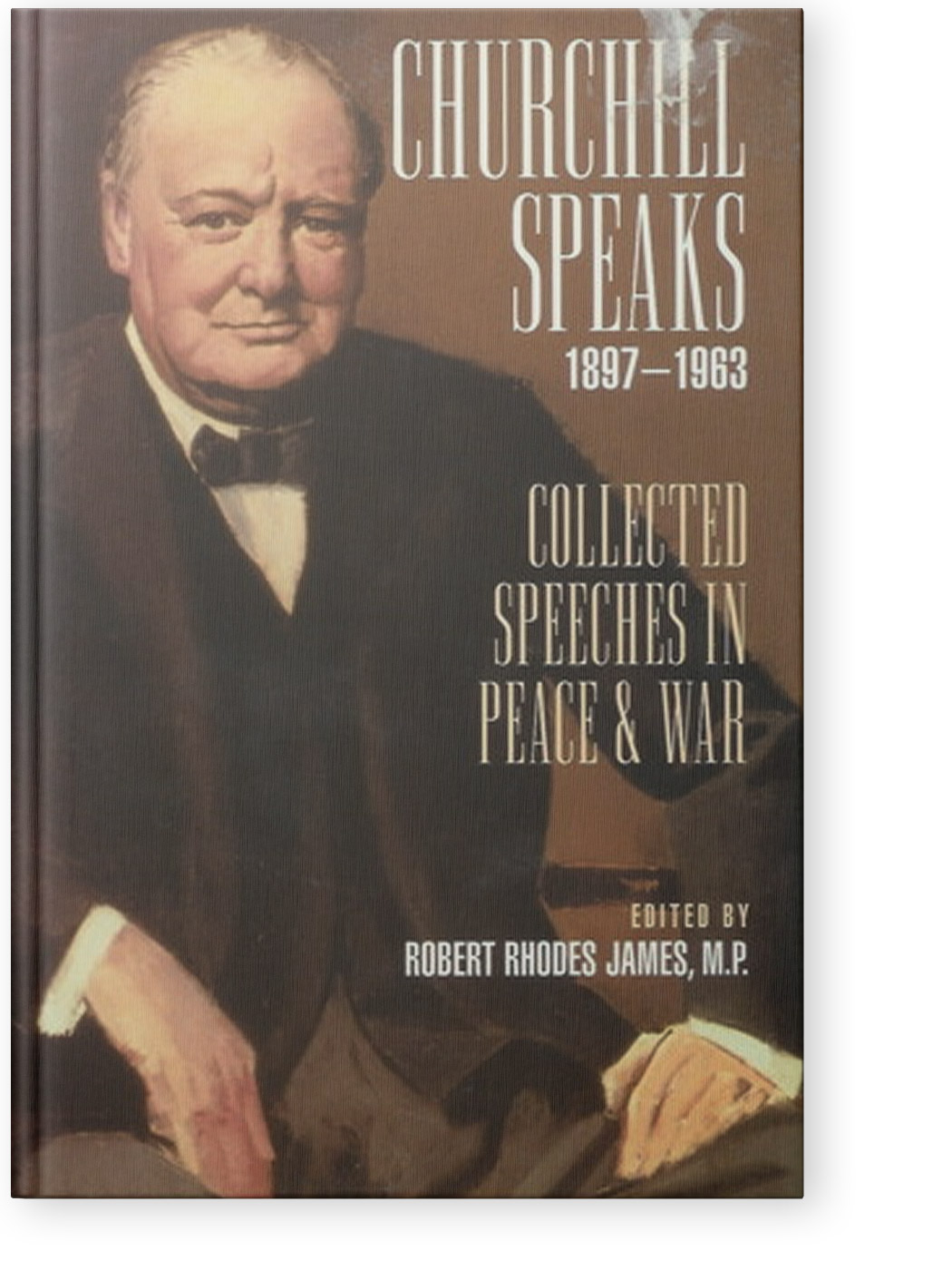
Churchill Speaks
Collected Speeches in Peace and War, 1897-1963
If you cringe whenever you hear our civic leaders butcher an over-rehearsed line, mix a metaphor or use any number of PC abominations currently in vogue, wash your ears out with this collection of speeches by a master of the English language. I consider any literary work or speech by Churchill to be among the best examples of the proper use of our great and beautiful language. More so than even Shakespeare, because Shakespeare is so antiquated, Churchill is the high priest of proper modern English. Churchill had a way of mixing humor, invective and sarcasm to drive home his point, but never in a base or vulgar way.
Winston Churchill Sir Winston Leonard Spencer-Churchill was a British statesman, army officer and writer, who served as Prime Minister of the United Kingdom from 1940 to 1945 and again from 1951 to 1955.
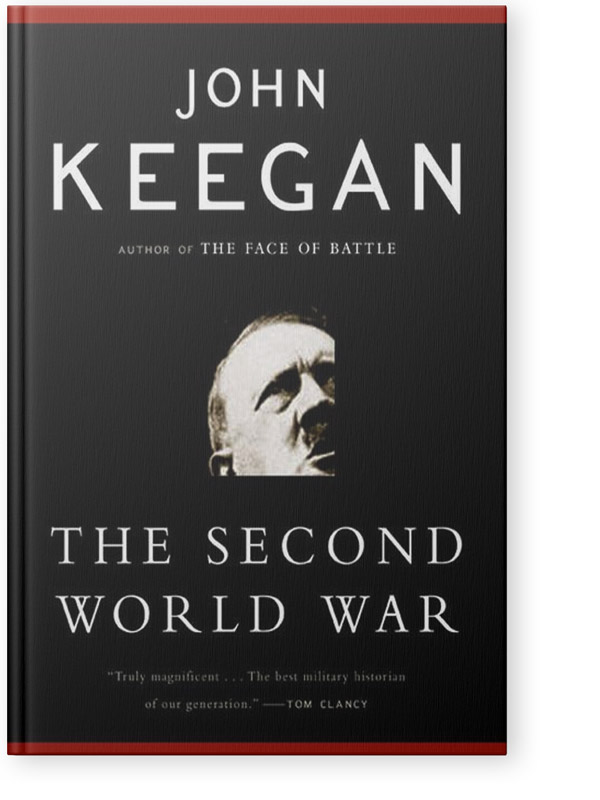
The Second World War
Keegan examines each theater of the war, focusing on five crucial battles and offering new insights into the distinctive methods and motivations of modern warfare. In eloquent, perceptive analyses of the airborne battle of Crete, the carrier battle of Midway, the tank battle of Falaise, the city battle of Berlin, and the amphibious battle of Okinawa, Keegan illuminates the strategic dilemmas faced by the leaders and the consequences of their decisions on the fighting men and the course of the war as a whole.
John Keegan one of the most distinguished contemporary military historians, was for many years Senior Lecturer at Sandhurst, the British Royal Military Academy, and Defense Editor of the London Daily Telegraph. A Fellow of the Royal Society of Literature, Keegan is the author of numerous books including The Face of Battle, The Mask of Command, The Price of Admiralty, Six Armies in Normandy, and The Second World War.
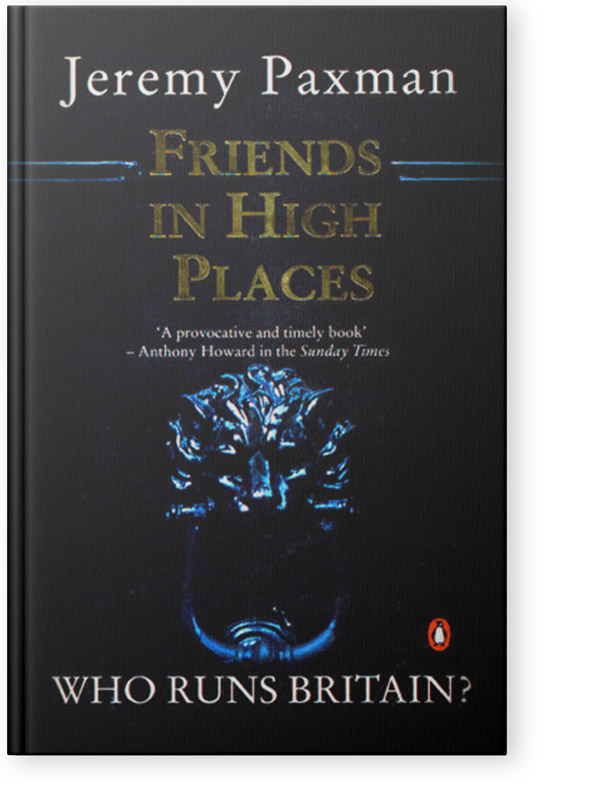
Friends In High Places - Who Runs Britain?
Paxman examines the pillars of the Establishment – their origin, influence, and future. An unbiased journey down the corridors of power, Friends in High Places provides an incisive and insightful view of who really runs Britain. The author decided to take a new journey, a journey within Britain, to see how the country was governed and where power really lies. In his journey to Westminster and Eton, to the city and to Whitehall, he draws his own conclusions as to where power has shifted to in 1990s Britain.
Jeremy Dickson Paxman is a British broadcaster, journalist, and author. He is the question master of University Challenge, having succeeded Bamber Gascoigne when the programme was revived in 1994. he was educated at Malvern College and St Catharine’s College, Cambridge, where he edited the undergraduate newspaper Varsity. At Cambridge, he was a member of a Labour Party club and described himself as a socialist, although in later life described himself as a one-nation conservative.
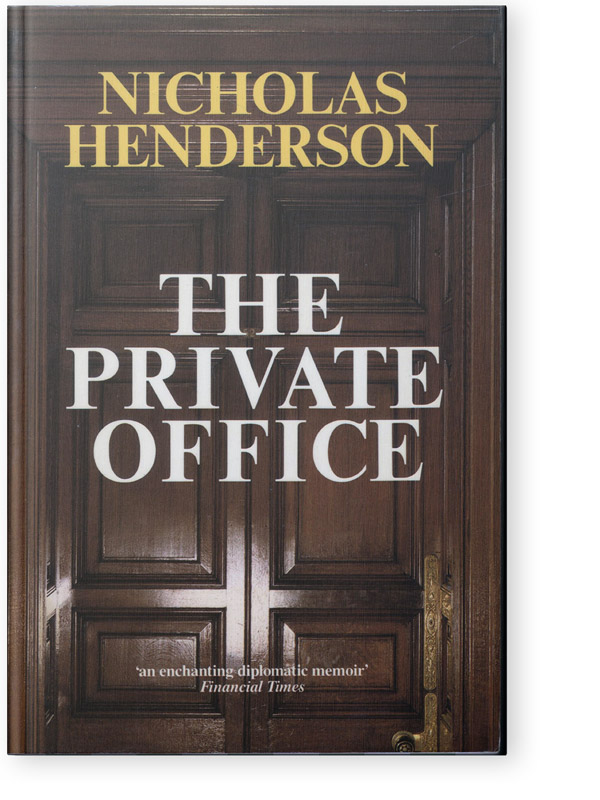
The Private Office
Sir John Nicholas Henderson (1919–2009) held the three most coveted ambassadorial posts for a British diplomat – Bonn, Paris and Washington – between 1972 and 1982. This crowned a distinguished career, which had gone from the private offices of Anthony Eden and Ernest Bevin, via posts at Athens, Santiago, Vienna, and Warsaw. He was told of his appointment to Paris in March 1975 to his delight and surprise, as he had never served there and knew little about it. A charismatic, stylish and charming ‘mandarin’, as he entitled his diaries, he became prominent nationally and internationally, especially after his famous Paris farewell despatch in March 1979, on which more later. This came at the historic turning point between the most denigrated decade in post-war Britain and Margaret Thatcher becoming Prime Minister. George Walden described him as ‘a diffuse sort of man… a look of amiable derangement. … With his Bloomsbury credentials (he was related distantly to the illustrious circle), his intimations of originality, his friends on the Left, his affected clothes, and unaffected amiability, Nicko was a stylish fellow. Politicians loved him because he gave them what they wanted: the big picture.
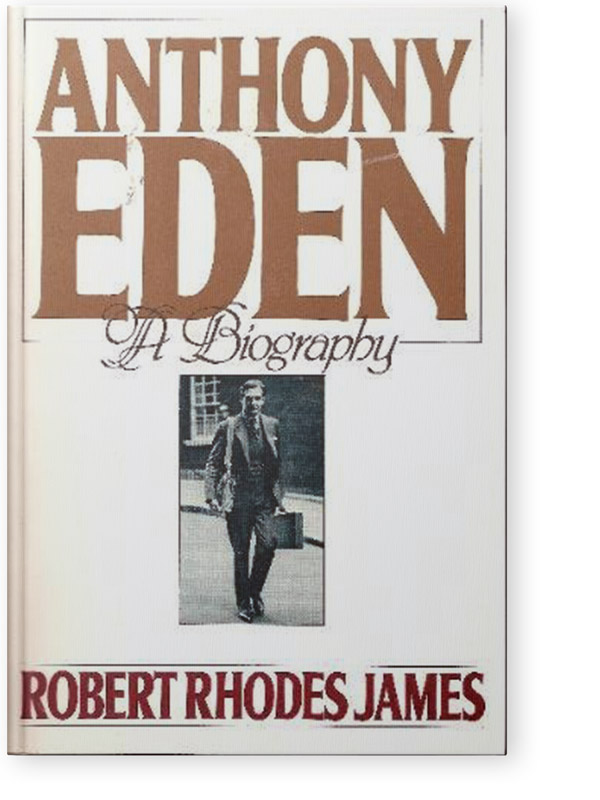
Anthony Eden : A Biography
Eden was Neville Chamberlain’s foreign secretary in the 1930s, held the same position under Churchill during World War II and succeeded the latter as prime minister in 1955. Asked by Eden’s widow to undertake the project, Jamesa distinguished historian (The British Revolution, etc.) and member of Parliamentwas given access to Eden’s private papers, including revealing correspondence with Churchill. The biography sheds new light on Eden’s 1938 resignation over Chamberlain’s policy of appeasement; his contribution to the 1954 Geneva conference (James argues that Eden “virtually single-handedly” kept America out of a war in Indochina); and examines the full context of Eden’s controversial leadership during the Suez crisis of 1956. A sympathetic but not uncritical portrayal of a complex figure who “brought honor and dignity, kindness and loyalty to the often grubby trade of politics.” Photos. Major ad/promo; History Book Club selection. Copyright 1987 Reed Business Information, Inc.
Robert Rhodes James (10 April 1933 – 20 May 1999) was a British historian and Conservative Member of Parliament. Between 1955 and 1964, Rhodes James worked in the Clerk’s Department (the internal civil service) of the House of Commons, first as a Clerk and then, from 1961, as a Senior Clerk. During this time, his first book, a biography of Lord Randolph Churchill, was published in 1959. His next book, An Introduction to the House of Commons (1961) was awarded the John Llewellyn Rhys Prize. Following two more books – Rosebery (1964), a biography of Archibald Primrose, 5th Earl of Rosebery; and Gallipoli (published 1965), a reappraisal of the ill-fated World War I campaign – he became a fellow of All Souls College in Oxford. There, having left his Commons post, in 1964, he engaged in researching the papers of J. C. C. Davidson full-time between 1965 and 1968.
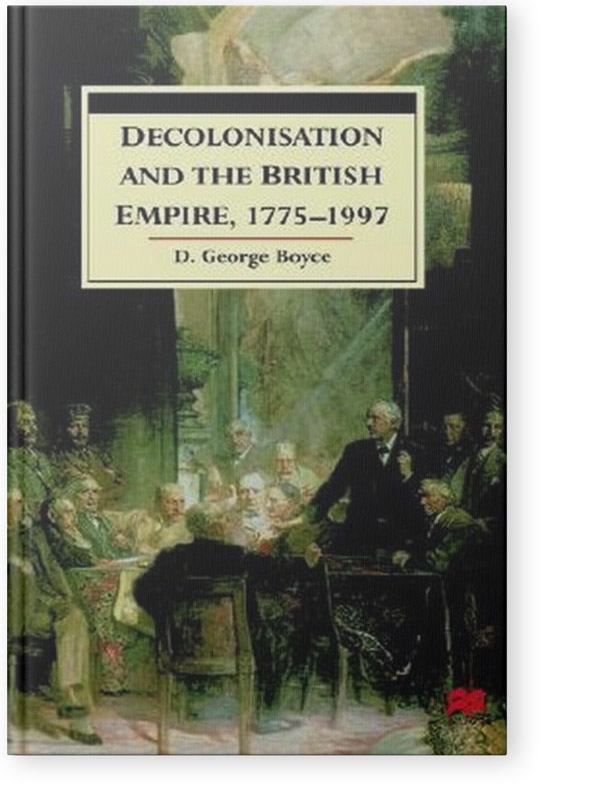
Decolonisation and the British Empire, 1775-1997
This book analyzes the ideas and policies that governed the British experience of decolonization. It shows how the British political tradition with its emphasis on experience over abstract theory was integral to the way in which the empire was regarded as being transformed rather than lost. This was a significant aspect of the relatively painless British loss of empire. D. George Boyce places the process of decolonization in its wider context, tracing the 20th century domestic and international conditions that hastened decolonization.
David George Boyce also known as George Boyce, is a Northern Irish historian who specializes in Irish history. He is Professor of Politics in the Department of Politics at the University of Wales, Swansea. He was educated at Lurgan College in Armagh and at Queen’s University Belfast. He worked in the Department of Manuscripts at the Bodleian Library in Oxford until 1971. From 1971 until 2004 he was a lecturer in the Department of Politics and International relations at Swansea University. He is also a fellow of the Royal Historical Society. He has contributed 15 articles to the Oxford Dictionary of National Biography.
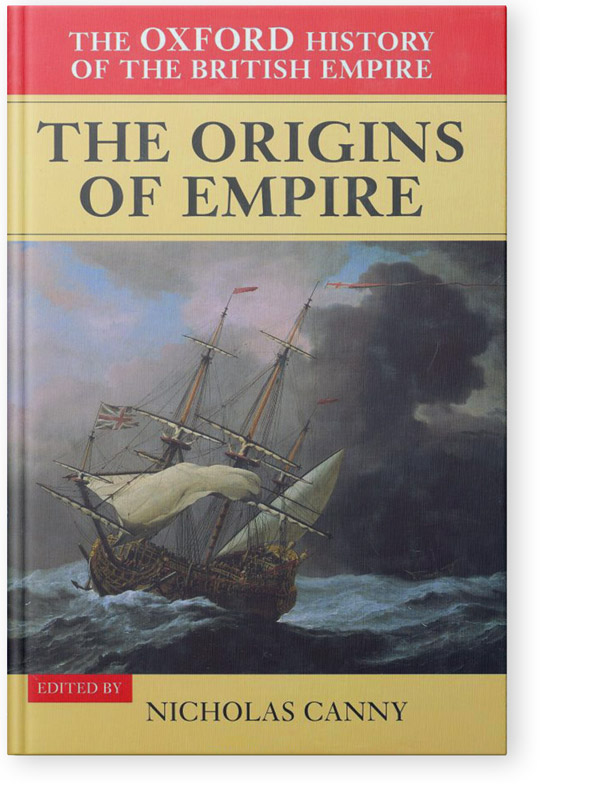
The Oxford History of the British Empire
The Oxford History of the British Empire is a major new assessment of the Empire in the light of recent scholarship and the progressive opening of historical records. It deals with the interaction of British and non-western societies from the Elizabethan era to the late twentieth century, aiming to provide a balanced treatment of the ruled as well as the rulers, and to take into account the significance of the Empire for the peoples of the British Isles. All five of the volumes in this series fully explore economic and social trends as well as political ones.
Editor-in-Chief: William Roger Louis
William Roger Louis (Author)
P. J. Marshall (Author)
Nicholas Canny (Editor)
Series: 1st Edition
Paperback: 556 pages
Publication Date: 1998
Publisher: OUP Oxford
ISBN-10: 0198205627
ISBN-13: 978-0198205623
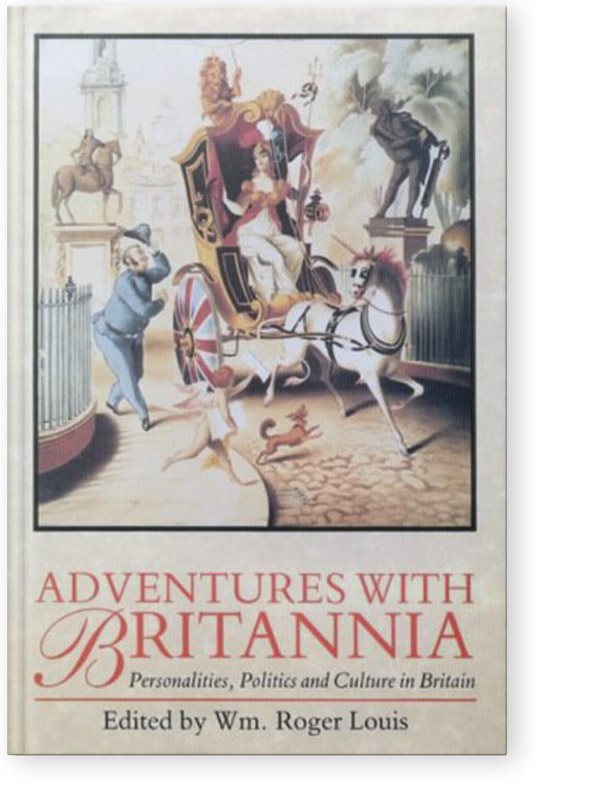
Adventures With Britannia
Personalities, Politics and Culture in Britain
Assembling the reflections of prominent writers on the political and intellectual history of modern Britain, this book deals with a rich variety of themes, some familiar, many unexpected, taking the reader on a highly engaging excursion through British life and intellectual biography. The scope includes not only the personalities, politics and culture of England, Wales, Scotland and Ireland, but also the interaction of British and other societies throughout the world.
William Roger Louis CBE FBA (born May 8, 1936), also known as Wm. Roger Louis or, informally, Roger Louis, is an American historian and a professor at the University of Texas at Austin. Louis is the editor-in-chief of The Oxford History of the British Empire, a former president of the American Historical Association (AHA), a former chairman of the U.S. Department of State’s Historical Advisory Committee, and a founding director of the AHA’s National History Center in Washington, D. C. Read more
Series: 1st Edition
Paperback: 352 pages
Publication Date: 1995
Publisher: Univ of Texas Pry
ISBN-10: 1860640028
ISBN-13: 978-1860640025

